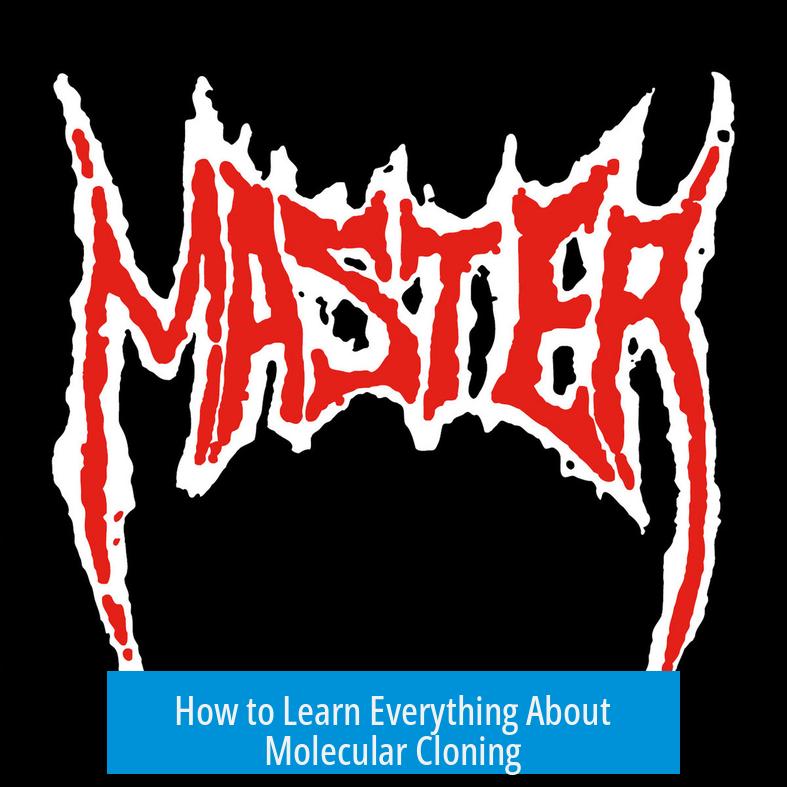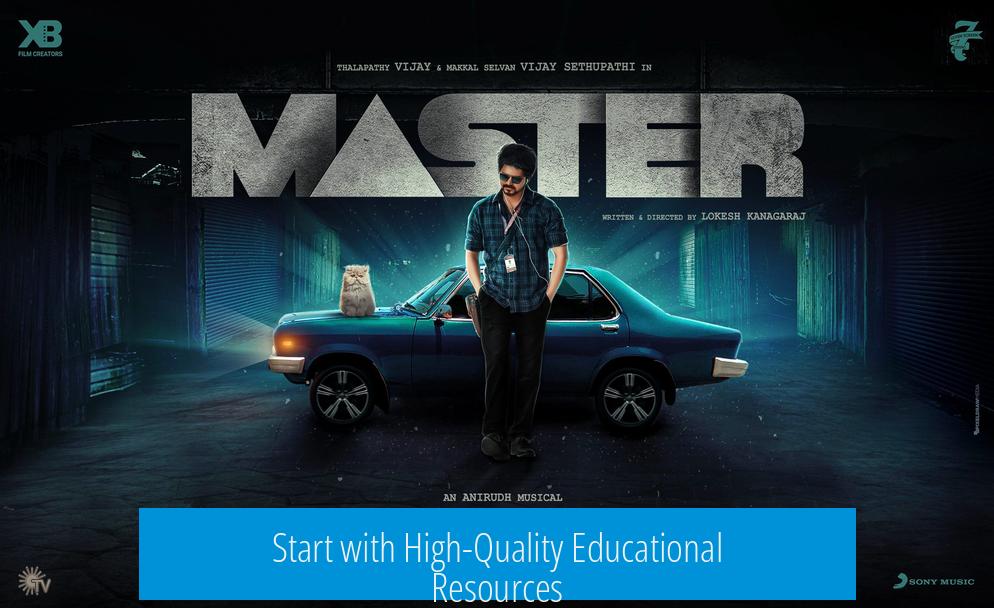How to Learn Everything About Molecular Cloning

Learning everything needed about molecular cloning requires using comprehensive educational resources, gaining hands-on experience, embracing continuous self-education, and developing practical laboratory skills. These elements build a strong foundation in theory and practice.
Start with High-Quality Educational Resources

Begin by studying reputable materials, such as Addgene’s free Plasmid eBook. It explains fundamental concepts clearly and offers useful protocols that benefit beginners and advanced learners.
Explore Addgene’s collections of blog posts and detailed protocols. These resources cover a wide range of cloning techniques and troubleshooting tips, bridging gaps in conventional textbooks.

Address Limitations in Formal Education
Many university curriculums stay outdated and often lack modern equipment needed for advanced molecular cloning. Learners can overcome this by seeking short-term training courses that provide hands-on experience.

Self-learning is equally valuable. Online tutorials, procedural videos, and downloadable protocols enable people to learn independently. The internet provides a wealth of updated knowledge that complements formal education.
Adopt a Proactive and Humble Learning Approach

A critical attitude toward learning involves asking insightful questions while preparing thoroughly beforehand. Before seeking help, read related papers, study step-by-step protocols, and understand the theory behind techniques like Co-Immunoprecipitation (Co-IP).
If difficulties arise, consult experienced peers who have mastered the methods. However, be cautious of negative lab dynamics and avoid relying on unhelpful individuals.

Master Practical Skills and Troubleshooting
- Follow protocols meticulously without skipping steps.
- Develop precise pipetting skills, focusing on careful delivery and mixing.
- Learn to troubleshoot critically; repeating the same error leads nowhere.
- Seek mentoring from experienced practitioners.
- Be persistent—practice improves skills and closes knowledge gaps.
Summary of Key Points

- Use comprehensive resources like Addgene’s eBook and protocols.
- Compensate for limited formal training with short courses and online materials.
- Prepare well before asking questions; learn through reading and observation.
- Follow protocols exactly and master lab techniques such as pipetting.
- Embrace problem-solving and maintain persistence in skill development.
How Do I Learn Everything I Need to Learn About Molecular Cloning?
Learning molecular cloning is achievable through a mix of comprehensive resources, practical training, and the right mindset. It’s not about memorizing every detail but about developing a solid understanding, hands-on skills, and knowing where to find answers when you get stuck.
So, how does one truly master molecular cloning? Let’s unpack this step-by-step, with insights and recommendations that anyone, from a curious beginner to an undergrad struggling with a thesis, can use.
Start With Comprehensive Educational Resources
If you’re wondering where to begin, Addgene’s Plasmid eBook is a fantastic free resource. It’s packed with clear explanations, diagrams, and practical info that helped many students nail their undergrad theses — it can do the same for you.
Besides the eBook, Addgene’s blog posts and molecular biology protocols offer a treasure trove of up-to-date cloning techniques and troubleshooting tips. Don’t rush to memorize. Instead, read actively to understand concepts and procedures like plasmid design, restriction digestion, ligation, and transformation.
Recognize and Overcome the Limits of Traditional Education
Many students especially from countries like India report that university curriculums are often outdated, lacking access to modern equipment or skilled faculty for molecular biology research. So, if your university doesn’t provide hands-on experience or the latest knowledge, don’t get discouraged.
Look beyond traditional textbooks and lectures. Online tutorials, video demonstrations on platforms like YouTube, and short hands-on training courses in molecular biology can fill these gaps nicely. Self-learning protocols and watching others do it can give you an edge.
The Power of a Proactive and Humble Learning Approach
Your attitude matters as much as your resources. Be open to asking questions when unsure—but first, try to educate yourself. For instance, if you want to learn co-immunoprecipitation (Co-IP), start by reading manufacturer protocols and scientific papers to understand the theory. Then, seek someone experienced who can guide you practically.
But beware of lab dynamics! Not everyone will welcome questions patiently—don’t waste your time with jerks. Find supportive peers or mentors. Genuine curiosity and respectful inquiry usually earn helpful responses.
Focus on Developing Practical Laboratory Skills and Mindset
- Follow protocols to the letter at first: Skipping even a small step can cause experiments to fail. Precision is key.
- Master pipetting skills: It’s not just about the volume but how you pipette. Softer, steady pipetting yields better results than rushing or harsh techniques.
- Consult experienced lab members: People who’ve done a technique before can share invaluable tips, shortcuts, and warnings about common pitfalls.
- Learn to troubleshoot: If an experiment fails, repeating it the exact same way won’t help. Analyze possible mistakes, adjust parameters carefully, and try again.
- Be persistent: Never think inexperience is permanent. Consistent effort leads to growth and catching up on gaps.
Practical Tips to Speed Up Your Molecular Cloning Mastery
Here’s a quick plan to learn molecular cloning effectively:
- Read and understand foundational resources: Download Addgene’s eBook and explore their molecular biology reference pages.
- Watch hands-on video tutorials: Visual learning complements reading. Channels like “JoVE” or university lab videos are great.
- Perform simple cloning experiments: Start small—pick a plasmid and try to clone a gene using standard protocols.
- Join workshops or short courses: Real-world labs provide equipment and mentorship that online learning can’t fully replace.
- Network with experienced researchers: Ask thoughtful, well-informed questions and request guidance actively.
Why Persistence and Curiosity Trump Everything
Imagine trying cloning for the first time. You’re nervous, pipette shaky, and it doesn’t work. Most beginners feel this way. The key is not to quit. Every failure becomes a lesson. This growth mindset can open doors to advanced cloning methods like Gibson assembly or site-directed mutagenesis.
Your willingness to self-teach and experiment, combined with accessing quality resources, forms the backbone of effective learning in molecular cloning.
“It’s never too late to ask, never too early to learn, and always worth the effort to become better at science.”
In Summary: How To Learn Molecular Cloning Inside Out
- Start with free, high-quality materials like Addgene’s plasmid eBook and molecular biology protocols.
- Complement theory with videos, self-practice, and whenever possible, hands-on training courses.
- Develop excellent lab habits, from following protocols exactly to mastering pipetting.
- Practice asking smart questions after self-study and build relationships with helpful mentors.
- Keep troubleshooting, stay humble, and persist through failures.
In short, learning molecular cloning is a journey. It’s not about knowing everything upfront but growing through resources, practice, and patience. Ready to start cloning success?
How can I start learning molecular cloning effectively?
Begin with comprehensive resources like Addgene’s Plasmid eBook. It covers fundamental concepts thoroughly. Supplement this with Addgene’s protocols and blog posts for practical insights.
What should I do if my university lacks modern equipment or updated courses?
Consider short-term hands-on training outside your university. Use online protocols, YouTube tutorials, and reference books. Self-learning can compensate for infrastructure gaps.
How important is asking questions during my learning process?
It’s vital to ask, but only after some research. Read enough about the technique or theory first. This shows effort and helps you ask clear, specific questions.
What practical skills are crucial for molecular cloning?
- Master pipetting techniques for accurate reagent handling.
- Follow protocols exactly to avoid errors.
- Learn to troubleshoot failed experiments creatively.
How do I deal with difficulties or failures in molecular cloning experiments?
Persistence matters. Analyze what went wrong rather than repeating the same steps. Seek advice from experienced peers, but avoid negative lab dynamics that discourage learning.





Leave a Comment